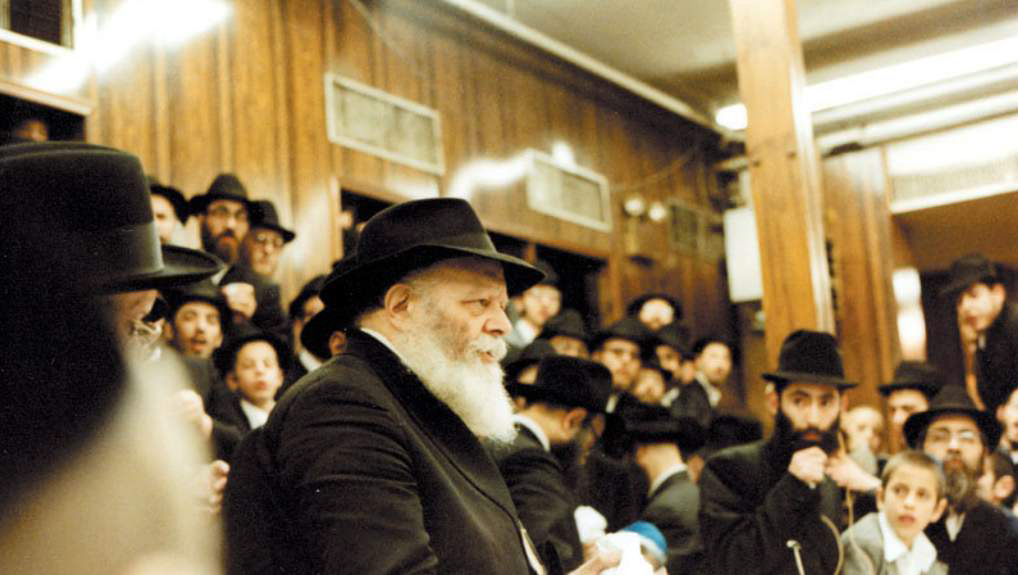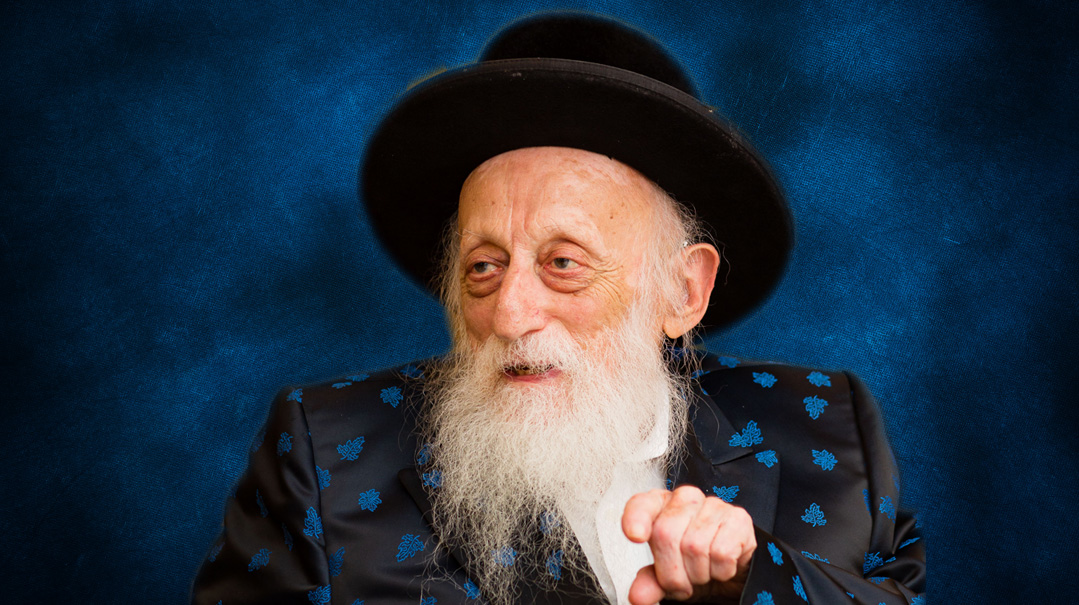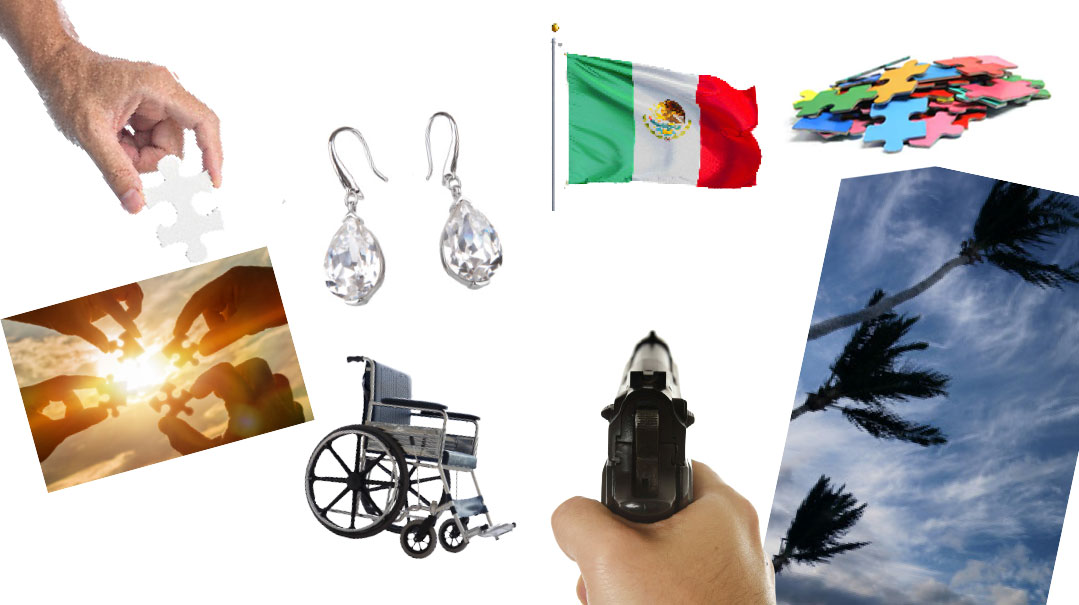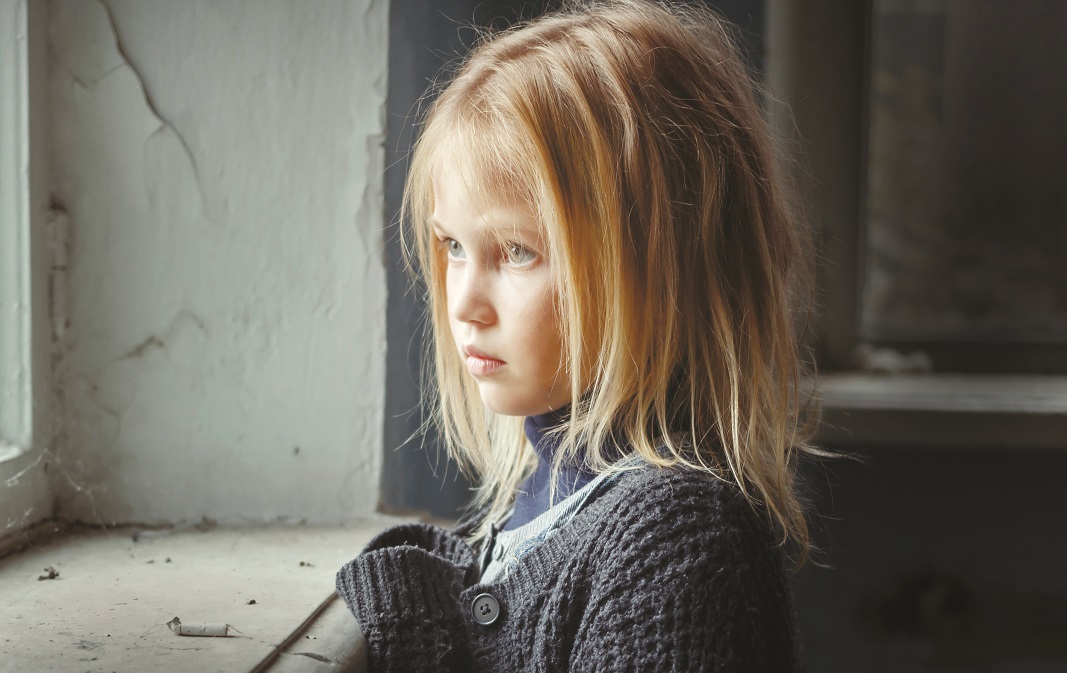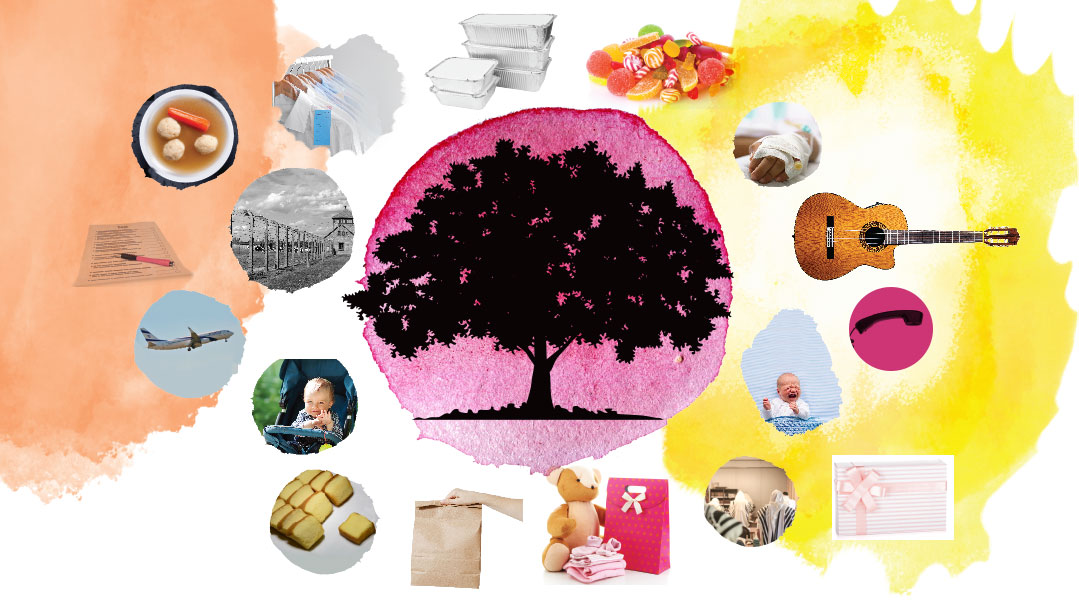Imprisoned
| February 22, 2017
Addiction is swallowing some of our best and brightest. No longer a few individual voices; this has become a communal cry of pain. These voices tell the stories of those who bear witness to addiction’s gritty costs giving a glimpse of the battles they fight daily. Five women who have a relative grappling with addiction share the pain of being on the edge of the whirlpool unable to pull out the person they love.
Where There Is Love There Is Hope
Tikva Ben Shalom
I lie in my daughter’s bed holding her as she trembles with withdrawal symptoms from yet another drug relapse. Tomorrow she flies to a new facility. Maybe it will be different this time. I’m on a tilting Ferris wheel of raised hopes fearful of having them dashed yet again.
Where are you going my little one little one?
Where are you going my baby my own?
Turn around and you’re two
Turn around and you’re four
Turn around and you’re a young girl going out of my door
And the verses continue:
Little sunsuits and petticoats
Where have they gone?
Turn around and you’re tiny
Turn around and you’re grown
Turn around and you’re a young wife with babes of your own.
Whenever I played this piece on the piano I’d become teary-eyed. The lyrics spoke to me of the transience of life and of the preciousness of those fleeting scenes of childhood.
I stroke her wan face and I remember that little girl and I yearn to hold her with the same confidence in my ability to protect her and assure her of a beautiful future. I’m mindful of how fragile she is and how completely powerless I am to protect her from the pain that’s her constant companion.
I used to think that if I just knew the perfect parenting formula or consulted with the top professionals I could locate that foolproof formula: a solution to the paradox eluding us and others as well in these troubling times. I now know that it’s the One Above Who holds the key to her recovery and this painful journey too is part of His perfect plan.
What is it like to live with addiction?
It is heartache that never goes away — it sits in your chest taking up residence heavy and unmoving. It is fear constant fear that rises unbidden at all hours of day and night. Sometimes it can be pushed aside and you can actually go about your business. At other times the fear is like a balloon inflating slowly bit by bit until it fills your innards so tightly you are certain you’ll burst from its paralyzing grip.
Addiction sucks out the joy of a beautiful day the pride you ought to experience in your healthy family members who are involved in the ordinary tasks of daily living. Addiction attaches itself like a lingering stench accompanying you wherever you go tingeing everyday affairs with its pervasive odor with the sense of things not being right not ever being right because something’s always missing.
The beauty of the grandchildren, their sweet innocence, is tarnished. The deep contentment we were meant to feel for those children living lives of purpose and productivity is diminished. The loving relationships we so cherish, even those, must stretch to override this black hole of anxiety and insanity that always accompanies those who live with addiction. The mental energy necessary to overcome this burden is immense. I feel like a person with no skin, living unprotected and unsafe. An innocent comment from a colleague, an old melody, a sight or smell, can reduce me to tears, reminding me of the child I once knew, who radiated sunshine and happiness.
You learn to insulate yourself from regular experiences. You don an inner bulletproof vest to keep the reactions at bay, when “regular” friends talk of graduations, seminaries, camp positions, and job opportunities their children are embarking upon. We, who walk in darkness, wonder if we will ever experience those things again. We’ve forgotten that we walked those roads many times with other children. Maybe we, too, were less than sensitive, making general references to successes, achievements, and milestones, which to those in pain seemed elusive and unattainable. Straddling hope and despair; being afraid to hope that maybe this time it will work — maybe this time she’ll be ready to face the demons that hold her captive. Maybe this time someone, somewhere, will open the door to her heart and free her from the blackness that has pulled her away from all whom she loves. Being afraid to hope is almost as bad. Without the belief that a Power greater than ourselves can restore us to health, life feels not worth living. We must believe that better days will come; we must trust that there is meaning in all this pain. Faith and trust become our tools for survival.
Faith, that we can withstand these challenges and survive intact, and trust, that the Almighty has a plan, not only for this child, but equally for all of us living in the radius of her misery. Addiction saps your energy. You are a shadow of yourself, someone who moves about, doing what she has to, but barely. It is crippling and pervasive. Marriages suffer. Spouses are in so much pain; the child’s well-being occupies the first, middle, and last topic of every conversation. The married children vie for attention, taking an undeserved back seat, often harboring resentment at this sibling who has managed to intrude into their lives, kidnapping their loving parents as well, rendering them incapable of focusing on anything but her. Along with family dysfunction comes guilt, bales of it, for the innocent children who must witness the daily drama, for our emotional unavailability, for the sadness that just never goes away, for the pain we carry, for the pain we exude, the pain that lingers everywhere we turn. Addiction can bring anger and rage. White, hot rage at the losses we must endure, while our bewildered neighbors look on. Do they shake their heads and whisper about us behind their closed blinds? Do they see what is happening to our once-pristine home?
Rage and shame take turns, pushing us more into ourselves, making us shun “regular” simchahs and events, fleeing the feeling of being different, defective, unwhole, and unhealthy. Addiction is a host of recurring ghosts; ghosts of the past, when you lived in a halcyon world of goodness and safety. When you believed that if you lived life accordingly, you could rest assured that all would go well. Ghosts of the efforts that you could or should have made that might have made a difference. Ghosts of the dreams you were sure would be yours and the experiences that were just waiting for you. Ghosts — imaginary, yet so real, so compelling you can almost touch them; but they are not yours, not meant for you, at least not for now. Addiction is lies. Lies that you learn to live with, always doubting whether the truth you are being offered has even an ounce of credibility. Pretending to trust the promises, you act the role, but you are never really sure; having to guess and second guess if she will really come through, or will you be let down once again? Addiction is being afraid to count on it, always setting up a backup, because the pain of being disappointed is just too much to bear. Addiction is financial overhaul. The staggering costs of therapies and treatments that are critical components in the healing process. However, not only are these services required for the individual dealing with personal trauma, but most often family members living in the vicinity of a suffering loved one require the support of such services, as well. The astronomical expenses of rehabilitation facilities can send even the most financially secure families into a tailspin. Being forced to raise huge sums of money creates immense stress for families who can neither afford to foot the bills nor bring home their loved ones, who so direly depend on these resources. Addiction is prayer. Born of desperation, we have learned that our heartfelt pleas can pierce the Heavens. We have learned that when all else fails, when we feel we have explored every option out there, our Father in Heaven resonates with our pain, and He is the only One upon Whom we totally rely. It is not in the hands of the doctors, the therapists, the specialists, or the philanthropists; the One Above alone can provide the recovery and respite we so long to experience.
Last is the grief, the sense of mourning that fills your heart and soul. The quantum effort it takes to trust that things could change, to work on your own issues and your own recovery from the throes of doom, gloom, and disaster. The emotional energy that must painstakingly be diverted into healthy outlets, to survive the crushing void of where you are, instead of where you thought you would be, without losing hope, because without hope neither they, nor we, can survive. Without hope, no recovery can occur and no miracles can happen. Thankfully, there’s much to be hopeful for. There are wonderful organizations and support groups offering comfort and encouragement to families in crisis. Community resources have been created, and caring professionals have risen to the challenge. Still, there have been deaths too numerous to count, in this past year alone, on account of drug overdoses. We are fighting a brutal battle and we dare not become complacent. These exquisite souls possess a beauty no amount of suffering could ever extinguish. In their pain lies all of our pain — the ache of this seemingly endless exile, the loss of the grandeur and glory that was once ours. We long and pray to return to those days, as we long and pray for these special souls to find their peace and return to the land of the living.
I’m Fine Really
As told to Shoshana Schwartz
My mom and I used to be close. Real close. I’d tell her all my secrets share my hopes my fears. My favorite times were when we snuggled up on the couch together just me and her. I felt loved warm protected. I felt I knew that I was really important to her; I was an integral part of her.
It didn’t happen overnight. But slowly day by day things changed.
It started with Aron my older brother. I’d be in my room doing homework or listening to music and the screaming would start. My dad would be yelling at Aron and my mom would start crying. The topic was always the same: Aron was drinking. A lot. He’d yell back bang a few things my dad would yell louder and my mom would cry harder. Eventually someone would slam the door and it would suddenly grow as silent as a graveyard.
The quiet was worse than the noise.
It grew even quieter because Aron stopped coming home in the evenings like he used to. He’d wander in at three or four in the morning or stumble in as my dad returned from Shacharis. Sometimes I’d wake up in the dead of night to thunderclaps of anger ringing in my ears boomeranging around my room. I’d climb further under my covers trying to stuff my pillow into my ears to shut out the bitter fighting.
I remember sitting together with Dini my little sister on her bed in the middle of the night holding and rocking her trying to calm both of us. We held each other like two frightened passengers in a flimsy storm-tossed boat with no captain. And no life preservers.
The air in the house always felt thick. Heavy. As if I were living inside a thundercloud. I never knew when the pressure would grow so intense that everything would explode again.
The atmosphere was poisoning me. So I withdrew. I let the rain wash over me let the clouds come and go. I grew apathetic toward my family creating an emotional barrier between myself and everyone else. I tried to keep an eye out for Dini to shelter her from the worst of it. But my parents Aron and my older sister Yehudis were just shadows in the periphery; they barely registered on my radar.
I missed talking to my mom. I missed having the whole family sit around the Shabbos table. I missed… having a family. But stepping back was the only way to survive. I knew that if I wasn’t strong I’d get sucked into the maelstrom.
I kept my nose squeaky clean. I pulled straight As cleaned up after myself and stayed out of everyone’s way. I didn’t leave a footprint. I developed a knack for leaving a room just before a high-pressure storm blew in.
I had created a bubble for myself. I began to think nothing could penetrate that bubble.
And then Yehudis tried to kill herself.
My dad broke. Through the whole Aron thing he’d been furious. Solid stalwart unbending. He tried to whip Aron back into shape with demands for better behavior and promises that he’d toe the line. “How can you do this to yourself?” was the line I so often heard rip through the air and ricochet off the walls. But Yehudis’s suicide attempt her first of several and the drinking and drug use they discovered had preceded it was a blow beyond anything he could handle. When his strength crumbled so did any remaining feelings of security I’d had. I was more than devastated; I was paralyzed.
My mom tried to hold herself together, tried to smile, to be there for me and Dini. She’d come to my room, ask if I wanted to talk, but I always said no thanks. She said it was okay to cry, and I told her I was fine. I really did want to talk to her, more than anything, but I couldn’t add to her burden. And honestly, it wasn’t like it used to be, when I used to share everything with her, when I knew she was there for me. Instead, I felt like she was asking because she felt she had to.
Because it was her job as a mother. Because she didn’t want to “lose” another one. I knew that if I’d talk she’d listen, but that a part of her wouldn’t be in the room with me; a piece would be out there, with Aron and Yehudis. I withdrew even more. I didn’t have any more energy to look after Dini, and she, too, drifted to the sidelines of my life. I kept myself super busy with school, and I threw myself into my music. I sang all the time and started composing my own songs. I hung out a lot with my friends. They basically knew what was going on, but I didn’t make a big deal out of it. Every family has issues — these were mine. When things got so bad they couldn’t get worse, Aron enrolled in Retorno’s outpatient center, and soon after Yehudis attended their residential program.
Change was in the air. Aron wasn’t just abstinent, he was becoming rational and focused and kind. He even started to make little lighthearted jokes. With his burgeoning stability, and Yehudis’s absence while she worked on her stuff, the quiet at home grew less ominous. After years of turbulence, I didn’t trust the calm, but it gave me some degree of hope that things just might return to normal someday. Unfortunately, “normal” wasn’t on the horizon. My grandma took a bad fall, and a slew of new needs popped up on my family’s radar screen: She needed to stay with us, she needed physio, and for some reason she “needed” to be involved in every single thing that transpired in our house. Under her watchful eye, little frictions blew up into major issues. Aron was interrogated about his comings and goings, Dini was treated to a nonstop commentary about her eating habits, and time and again I was yanked back from the sidelines. Stepping aside was no longer enough; I had to become even more invisible. When Yehudis finished her program, there was a goodbye party at Retorno, which the family attended, and everyone was given a chance to speak.
One after another, the girls in her group and all the staff talked about how much Yehudis had grown, how much deep emotional work she had done, how so many aspects of her had healed. When it was my turn to speak, I opened my mouth — and a torrent of sobs burst forth. I couldn’t say a single word. My mom understood, maybe for the first time, that there was a lot more going on for me than I’d let on. She made it a point to be more available to me, asked more questions, showed more interest. But I’d managed without her this far, I wasn’t about to start leaning now. Besides, it’s not that everything was all perfect in the family. Aron was stable, but Yehudis still had plenty of work ahead of her. She had a new set of friends, and she stayed clean, but there were still emotional ups and downs especially since she, too, had to deal with Grandma’s ongoing presence.
As Yehudis leveled out, I graduated high school and went to seminary in another city. It wasn’t just a year of gaining hashkafah and growing in yiras Shamayim, it was a process of learning to understand me. Together with the help of a therapist, I started to get to know the one person in my family who never made any noise: me. Now that I wasn’t surrounded by constant drama, I took a close look at my life and spent a long time asking myself who I am. I started to tune into the quiet both outside and in, and to enjoy that quiet. I’ve always been an introvert, but instead of disconnecting from others, I was learning to connect to myself. I examined my relationships with all my family members. I realized, for the first time, that I was holding in a lot of anger, especially toward my mom. As young as I was, I had so well understood how impossible her situation was, had so well identified the anguish she’d been suffering, that I could never bring myself to add to her pain by sharing mine. I blamed her for not pushing past my reluctance, for not shouldering my burden as well. I blamed her for her superficial questions, her half-hearted attempts to connect. I felt sad. Misunderstood. Forgotten. And when she started to remember me, I no longer wanted to be remembered. It was too little, too late.
Looking back, I wish I’d known that I didn’t have to be so perfect. That even though I’m not an addict, I also have a right to my parents’ time and attention. That it’s okay to ask for help, and if the right person isn’t my mom, then maybe there are others who might fill in. This is the message I try to get out to teenagers. I volunteer twice a week in a center for kids at risk. I’m a big sister for them, and I’m going for my certification in addiction counseling. I want to be there for these kids. Not just when there’s drama, but also after the drama dies down. Because once the storm passes, you’re still out on the water, and you always will be. That’s not a bad thing, it’s a reality. With a solid boat and a couple of life preservers, you can handle the waves.
Shoshana Schwartz is an addictions counselor and therapeutic horsebackriding instructor at Retorno. She is the author of Three Steps, first serialized in Family First, about addiction.
Oops! We could not locate your form.





